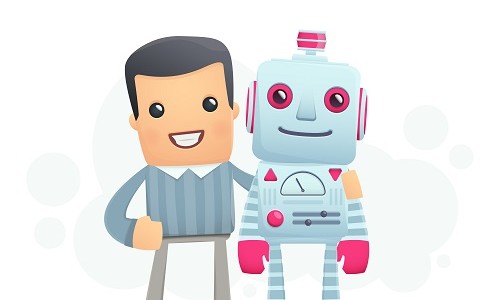Takeover might be too strong a word. People see the words “robot” and “takeover” in the same sentence and start searching their attics for pitchforks, and reminding us all about what happened to those in the movie Terminator who foolishly put their trust in robots.
But the robot takeover that’s being mentioned in this post is isn’t the scary type of robot takeover that ends with the termination, or enslavement, of the human race. This is a nice happy takeover that results in automating jobs, with robots taking over the dull and repetitive jobs and allowing humans to do other tasks.
New research suggests that almost half of all work in Japan could be done by robots within the next 20 years. A group of data analysts from a Japanese research institute looked at 600 different jobs in Japan, and found that “up to 49% of jobs could be replaced by computer systems”.
How did they decide whether or not jobs could be automated? They looked at how much creativity was required for each specific task. Based on this measurement, manual labor, drivers, delivery jobs, operators, and data entry positions could all be automated, whereas teaching, writing, and technology jobs are less likely to be automated.
These analysts worked with Michael Osborne, a professor from Oxford University, who had conducted the same type of research for other countries. Japan definitely had the highest percentage of automation-friendly jobs, but the United States wasn’t far behind. Osborne’s research suggested that 47 percent of U.S. jobs could be automated, and 35% of UK jobs could be automated.
This doesn’t necessarily mean that half of the Japanese workforce will be robots in 2035. These predictions are hypothetical. It’s not an actual estimate as to what will happen in the next 20 years, but a look what would could possibly happen.
Technophobes might say that automation eliminates jobs for human workers, and that this is exactly how the Terminator got its start before developing an affinity for time travel and murder. Those of us who embrace technology and recognize the advantages of automation, however, know that this could lead to some benefits.
Automating the simple, mindless, and repetitive jobs that aren’t necessary for people to do, frees up workers to do the jobs that require more creative thought and innovation that can’t be done by robots. If you’ve ever watched an industrial robot in action, you’ve probably noticed how tedious their work can be. Yes, they can do those tasks better than any human, but that’s not going to lead to the development of the next big thing in industrial motion control.
Robots taking human jobs isn’t necessarily a bad thing. History has shown us that increased automation does not lead to skyrocketing unemployment. It simply creates new and different jobs.



